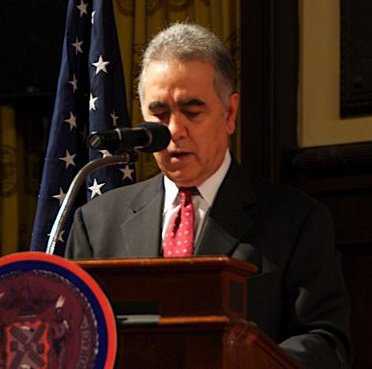
Before the Genocide, thousands of Armenians living in the Ottoman Empire bought life insurance from American and European companies, so that after their death, their heirs would receive a lump sum payment.
Regrettably, many of these companies refused to keep their end of the bargain when Armenian policyholders perished along with their entire families during the course of the Genocide. In most cases, no next of kin was left behind to file an insurance claim on behalf of the victims. A few families who did file a claim were turned down due to the lack of proper paperwork. Clearly, these companies broke their contractual obligations and enriched themselves by keeping the funds owed to the heirs of insured genocide victims.
Almost a century later, the State of California stepped in to restore justice to the wronged policyholders. Considering the tragic and unnatural circumstance of these deaths, the State approved two successive extensions to the statute of limitations in 2000 and 2011, to allow the heirs of genocide victims additional time to file claims against delinquent insurance companies.
Recognizing the negative publicity that such a lawsuit would generate, the New York Life and AXA Insurance companies quickly reached out of court settlements and paid a total of $37.5 million to the heirs of Armenian policyholders and charitable organizations. In contrast, German insurance companies Victoria and ERGO, backed by the Turkish government, decided to continue ducking their legal and moral responsibilities towards their ill-fated Armenian policyholders and refused to settle their long overdue claims. The German firms demanded that the lawsuit filed against them in 2003 be dismissed because the California statute included a reference to the Armenian Genocide, which allegedly conflicts with the foreign policy of the federal government on this issue.
A highly unusual series of court decisions ensued after Federal Judge Christina Snyder’s rejection in 2007 of the German insurance companies’ motion to dismiss. In 2009, a three-judge panel of the federal appeals court initially sided with the German companies, but then reversed itself in 2010, finding no legal problems with the California statute. Earlier this year, the German companies appealed once again, this time to a larger panel of 11 federal judges. That hearing, granted on November 7, is to be held in San Francisco during the week of December 12.
Rehearing this case for the third time is unnecessary because the California statute does not violate federal government’s stand on the Armenian Genocide. Indeed, there is no federal policy that bans states from recognizing the Armenian Genocide. Not a single complaint was lodged by any federal official, while more than 40 states adopted resolutions acknowledging the Genocide. In fact the California statute is in line with the federal government’s clear record on this issue. One should not forget that the U.S. House of Representatives adopted two resolutions in 1975 and 1984 recognizing the Armenian Genocide, and Pres. Reagan issued a Presidential Proclamation on this subject in 1981. In addition, the U.S. Justice Department recognized the Armenian Genocide in a document filed with the World Court in 1951, citing the Armenian mass killings as one of the “outstanding examples of the crime of genocide.”
Even though this latest appeal has absolutely no legal merit, the consequences of a negative court decision would not only harm the interests of life insurance claimants, but more importantly, the collective interests of the Armenian people, should the federal appeals court find California’s recognition of the Armenian Genocide to be in conflict with the federal government’s foreign policy. Such a ruling would negate several decades of Armenian-American political activism by reversing all the resolutions on the Armenian Genocide adopted by more than 40 American states.
The federal appeals court should rule in favor of the Armenian plaintiffs. The court could also uphold the California statute by separating the insurance aspect of the case, which is a prerogative of the states, from the unrelated issue of State vs. Federal powers on Genocide recognition. Should the judges rule against the California statute, however, the Armenian-American community would have no choice but to appeal that verdict to the U.S. Supreme Court.
There is one issue here that is crystal clear: the federal court should force the German insurance companies to make good on their contractual obligations to all policyholders, particularly those who are genocide victims!


Leave a Reply